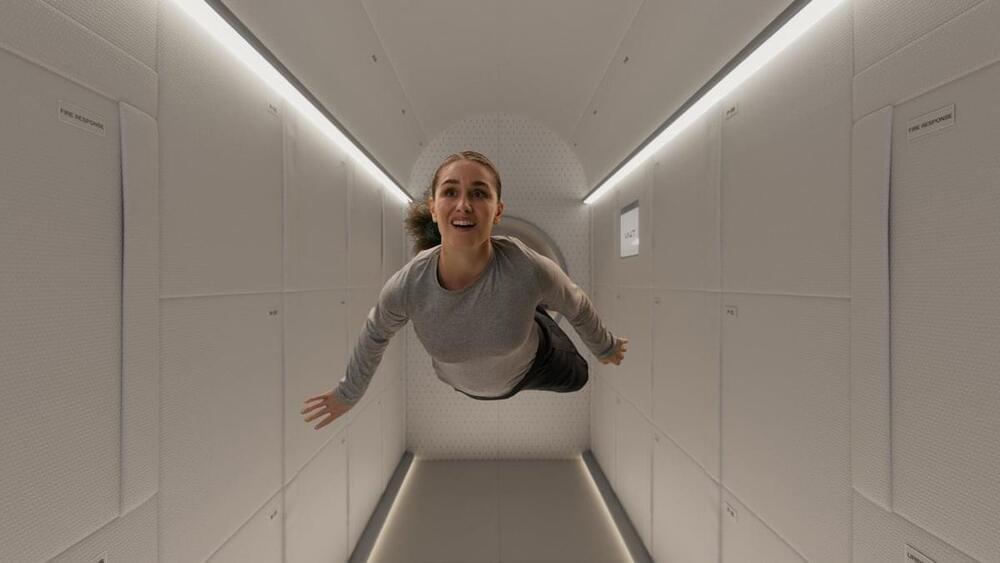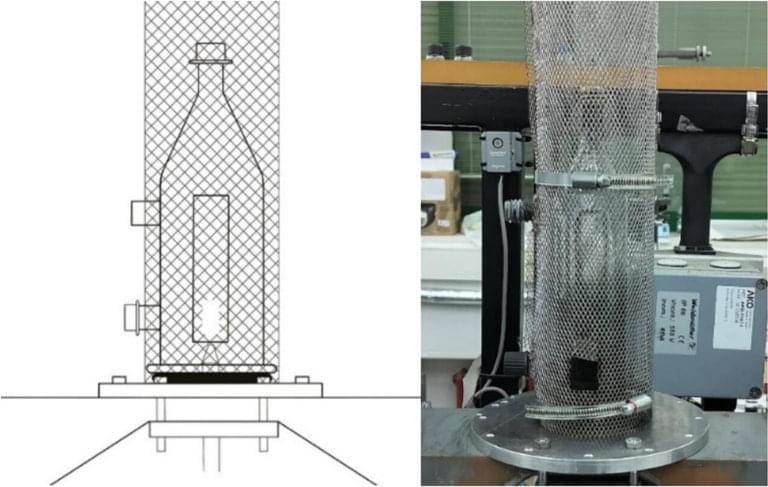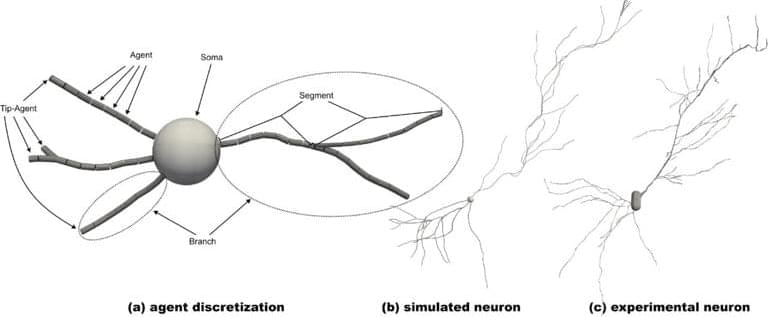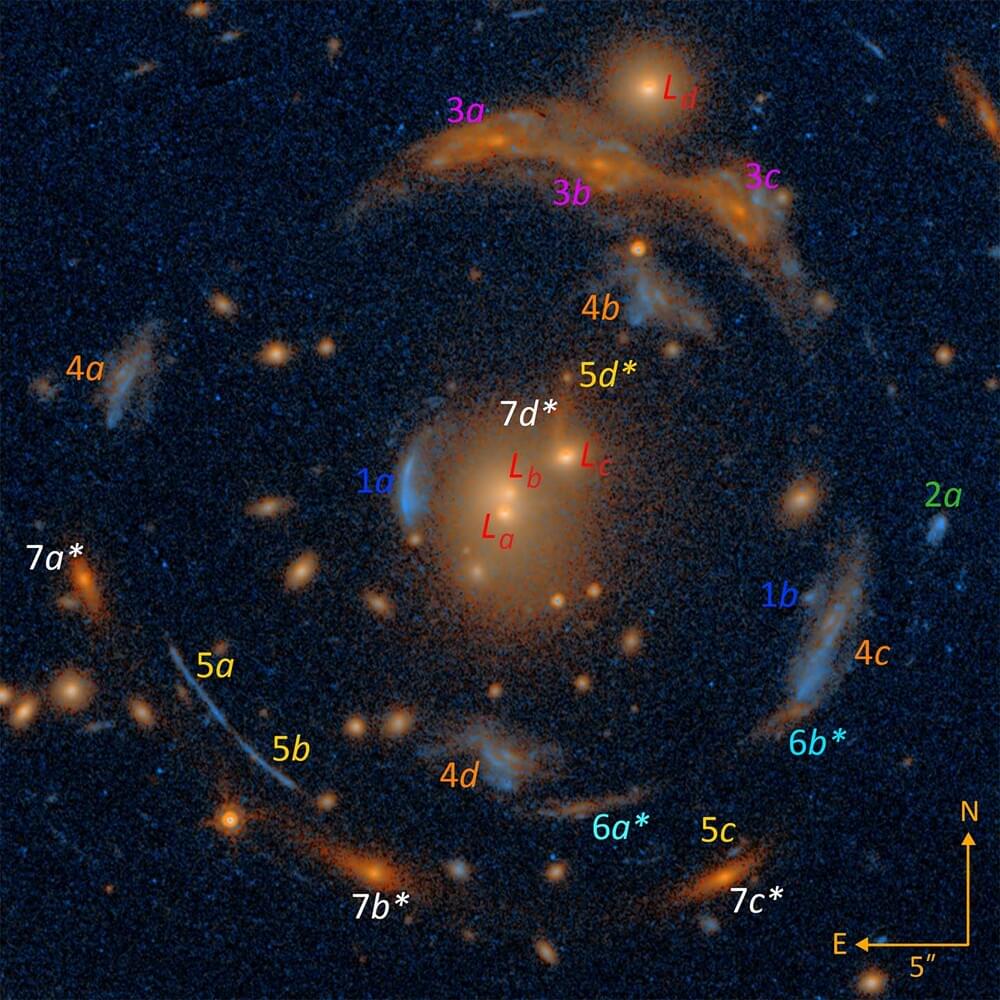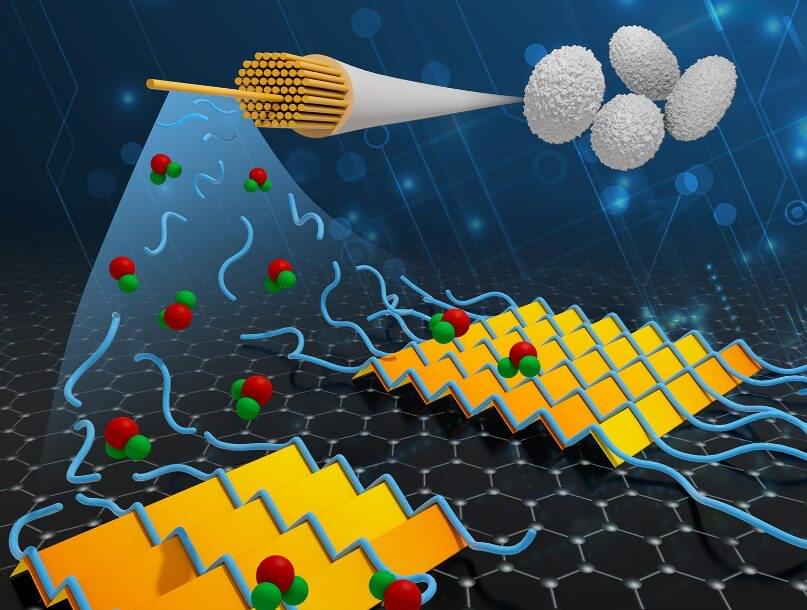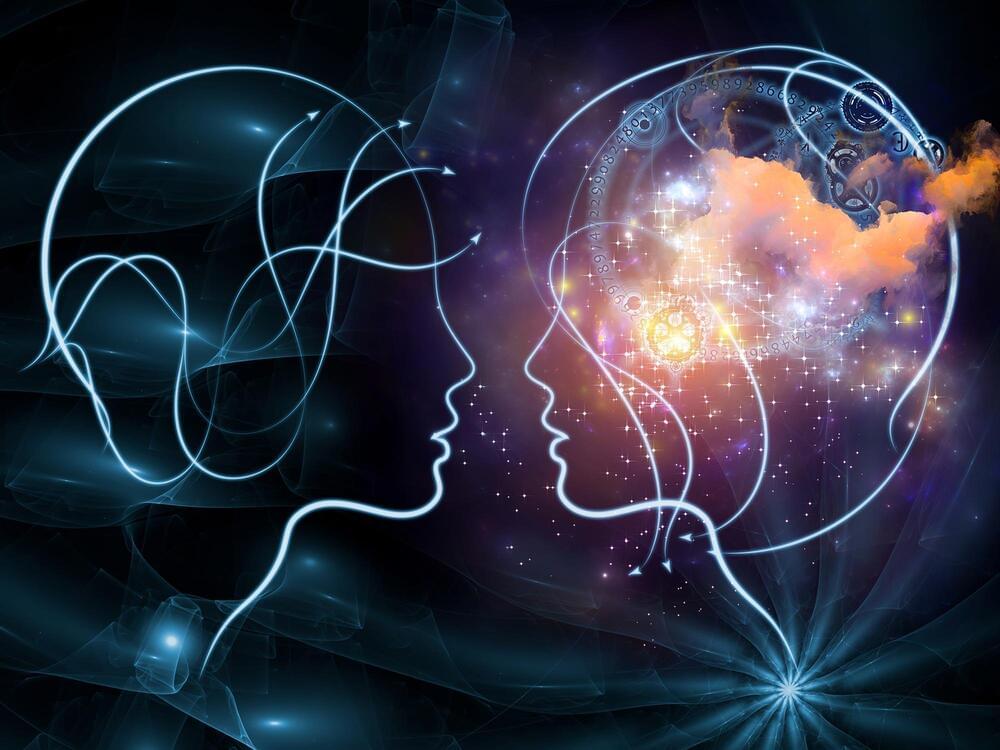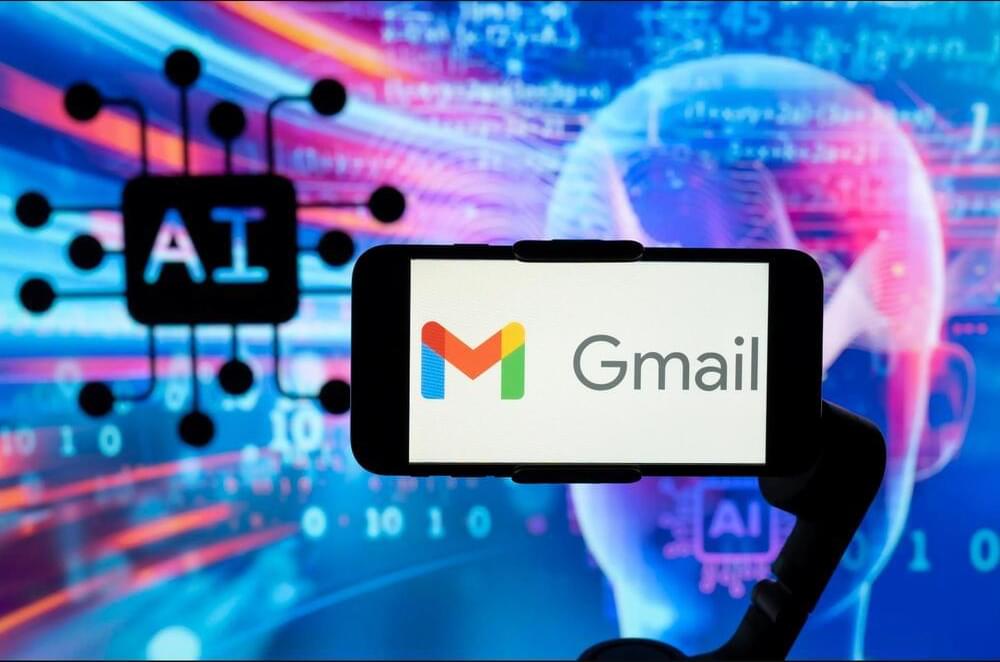Page 197
Oct 11, 2024
A new plasma-based technological design boosts graphene production by more than 22%
Posted by Genevieve Klien in categories: materials, sustainability
Harder than a diamond, stronger than steel, as flexible as rubber and lighter than aluminum. These are just some of the properties attributed to graphene. Although this material has sparked great interest in the scientific community in recent years, there is still no cheap and sustainable enough method for its high-quality manufacturing on an industrial scale.
Oct 11, 2024
Computer simulation mimics how the brain grows neurons, paving the way for future disease treatments
Posted by Genevieve Klien in categories: biotech/medical, computing, neuroscience
A new computer simulation of how our brains develop and grow neurons has been built by scientists from the University of Surrey. Along with improving our understanding of how the brain works, researchers hope that the models will contribute to neurodegenerative disease research and, someday, stem cell research that helps regenerate brain tissue.

The Top 4 Most viewed videos in the FENS Video Contest will be announced on June 10. View and Share to Vote for your favourite!
Description of the video:
This video is about how memories are stored in the brain. We are exploring how with an experiment, called long-term potentiation (LTP), we can modulate the strength of the connection between neurons. Combining filming in the laboratory with the use of bioinformatic tools and animation, we try to illustrate the cellular and molecular basis of this phenomenon.
Oct 11, 2024
Magnifying Deep Space Through the ‘Carousel Lens’
Posted by Natalie Chan in categories: cosmology, physics
A newly discovered cluster-scale strong gravitational lens, with a rare alignment of seven background lensed galaxies, provides a unique opportunity to study cosmology.
In a rare and extraordinary discovery, researchers have identified a unique configuration of galaxies that form the most exquisitely aligned gravitational lens found to date. The Carousel Lens is a massive cluster-scale gravitational lens system that will enable researchers to delve deeper into the mysteries of the cosmos, including dark matter and dark energy.
“This is an amazingly lucky ‘galactic line-up’ — a chance alignment of multiple galaxies across a line-of-sight spanning most of the observable universe,” said David Schlegel, a co-author of the study and a senior scientist in Berkeley Lab’s Physics Division. “Finding one such alignment is a needle in the haystack. Finding all of these is like eight needles precisely lined up inside that haystack.”
Oct 11, 2024
Flexible Circuits made with Silk and Graphene on the horizon
Posted by Natalie Chan in categories: computing, materials
After thousands of years as a highly valuable commodity, silk continues to surprise. Now it may help usher in a whole new direction for microelectronics and computing.
While silk protein has been deployed in designer electronics, its use is currently limited in part because silk fibers are a messy tangle of spaghetti-like strands.
Oct 11, 2024
Higher Levels of Leptin indicate Brain Protection against Late-life Dementia
Posted by Natalie Chan in categories: biotech/medical, health, neuroscience
Weight-maintaining hormone key to brain-signal transmission. A study more closely links obesity to dementia, finding that leptin, a hormone that helps maintain normal body weight, is associated with better signal-transmitting brain white matter in middle-aged adults.
New research is more closely linking obesity to dementia.
Higher levels of leptin, a hormone that helps maintain normal body weight, is associated with better signal-transmitting brain white matter in middle-aged adults, according to a study by The University of Texas Health Science Center at San Antonio (UT Health San Antonio).
Oct 11, 2024
New Disruptive Microchip Technology and The Secret Plan of Intel
Posted by Dan Breeden in categories: computing, media & arts
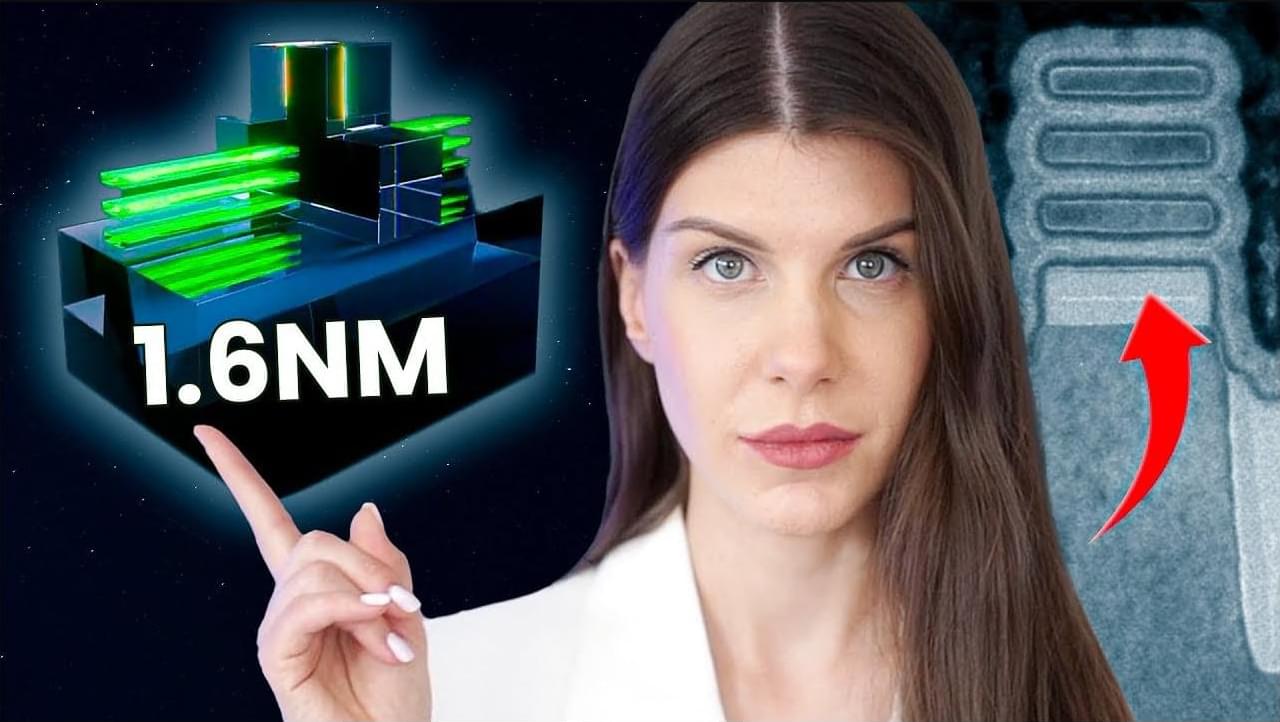
Enjoy the videos and music you love, upload original content, and share it all with friends, family, and the world on YouTube.
Oct 11, 2024
MIT Scientists Shed New Light on the Critical Brain Connections That Define Consciousness
Posted by Cecile G. Tamura in categories: media & arts, neuroscience
This study explores how the brain processes predictions and what happens to these processes during unconsciousness induced by the anesthetic propofol.
Our brains are constantly making predictions about our surroundings, enabling us to focus on and respond to unexpected events. A recent study explores how this predictive process functions during consciousness and how it changes under general anesthesia. The findings support the idea that conscious thought relies on synchronized communication between basic sensory areas and higher-order cognitive regions of the brain, facilitated by brain rhythms in specific frequency bands.
Previously, members of the research team at The Picower Institute for Learning and Memory at MIT and at Vanderbilt University had described how brain rhythms enable the brain to remain prepared to attend to surprises. Cognition-oriented brain regions (generally at the front of the brain), use relatively low-frequency alpha and beta rhythms to suppress processing by sensory regions (generally toward the back of the brain) of stimuli that have become familiar and mundane in the environment (e.g. your co-worker’s music). When sensory regions detect a surprise (e.g. the office fire alarm), they use faster frequency gamma rhythms to tell the higher regions about it and the higher regions process that at gamma frequencies to decide what to do (e.g. exit the building).
Oct 11, 2024
New Gmail Security Alert For Billions As 7-Day AI Hack Confirmed
Posted by Genevieve Klien in categories: cybercrime/malcode, robotics/AI
Google has implemented increasingly sophisticated protections against those who would compromise your Gmail account —but hackers using AI-driven attacks are also evolving. Here’s what you need to know.
Sam Mitrovic, a Microsoft solutions consultant, has issued a warning after almost falling victim to what is described as a “super realistic AI scam call” capable of tricking even the most experienced of users.
It all started a week before Mitrovic realized the sophistication of the attack that was targeting him. “I received a notification to approve a Gmail account recovery attempt,” Mitrovic recounts in a blog post warning other Gmail users of the threat in question. The need to confirm an account recovery, or a password reset, is a notorious phishing attack methodology intended to drive the user to a fake login portal where they need to enter their credentials to report the request as not initiated by them.
